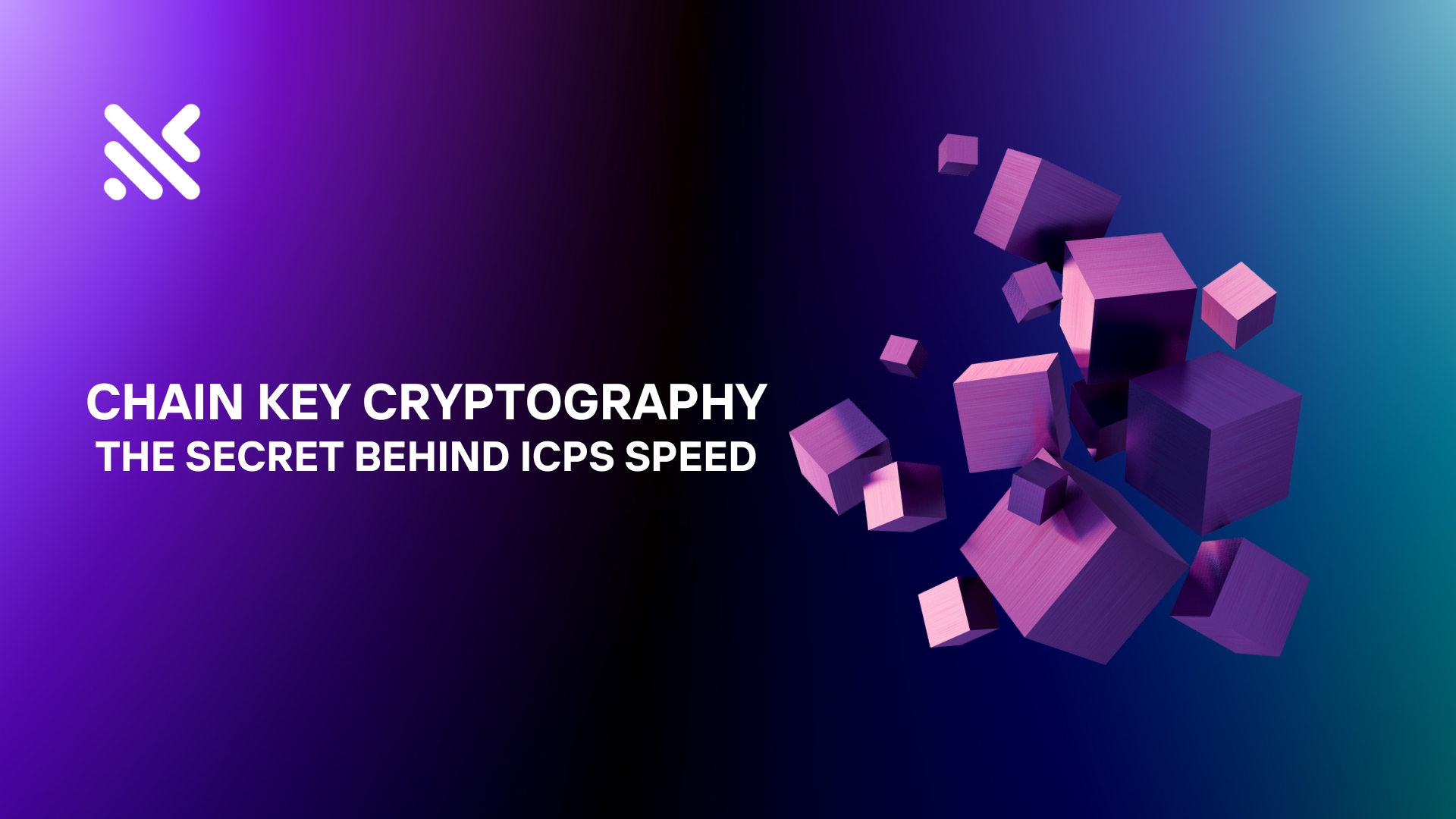
Chain Key Cryptography: The Secret Behind ICP's Speed
Blockchain technology is often constrained by slow transaction speeds, limited scalability, and complex verification processes. The Internet Computer breaks these barriers with Chain Key Cryptography, a revolutionary innovation that enables the network to operate at web speed, scale infinitely, and upgrade itself without downtime — all while maintaining uncompromising security.
At the heart of this system is a threshold signature scheme that distributes a cryptographic key across multiple nodes in a subnet. Unlike traditional blockchains, where a single compromised node can spell disaster, the Internet Computer ensures that no single node ever holds the full key. Instead, nodes collectively generate digital signatures through a distributed process, keeping the network both highly secure and incredibly efficient.
How Chain Key Cryptography Works
One of the biggest innovations in Chain Key Cryptography is its ability to enable digital signatures without ever reconstructing the full private key. Instead of a monolithic system where every node must store and manage cryptographic keys, the Internet Computer relies on a decentralized, mathematically secure approach. This allows transactions and smart contract executions to happen at a pace that rivals traditional cloud services.
Thanks to this design, the network operates with a single public key that can authenticate data instantly. Unlike other blockchains that require users to sync an entire transaction history for verification, the Internet Computer allows users to validate authenticity with just one signature. This not only simplifies interactions but also makes blockchain-based applications far more accessible to mainstream users.
Unparalleled Speed and Scalability
Speed and scalability have long been pain points for blockchain networks. Most suffer from congestion as transaction volumes increase, leading to delays and higher costs. Chain Key Cryptography fundamentally changes this dynamic. By separating smart contract execution into two types of calls—update calls that finalize transactions in 1–2 seconds, and query calls that execute in milliseconds—the Internet Computer offers an experience indistinguishable from using the traditional web.
But speed isn’t the only breakthrough. Unlike other blockchains that require a hard fork or downtime for protocol upgrades, the Internet Computer can evolve seamlessly. Nodes can be added, faulty ones replaced, and updates deployed in real time—all without disrupting the network’s operations. This level of autonomous network evolution is unprecedented in the blockchain space and sets a new standard for decentralized computing.
Why This Matters
Chain Key Cryptography enables the Internet Computer to process transactions in seconds, making decentralized applications as fast and responsive as their centralized counterparts. It eliminates the scaling bottlenecks that plague traditional chains, allowing ICP to grow without limits. And it fortifies network security by ensuring that no single point of failure can compromise the system.
These advancements aren’t theoretical—they are already being applied across decentralized finance, gaming, and social applications. As adoption grows, we are beginning to see glimpses of a future where tamper-proof blockchain voting systems, instant cross-border payments, and secure medical record sharing become everyday realities.
The Future of Blockchain Is Here
Chain Key Cryptography is more than just a feature of the Internet Computer—it’s a glimpse into what the next generation of blockchain will look like. It’s fast. It’s scalable. It evolves in real-time. As blockchain technology matures, innovations like this will be key to bridging the gap between crypto-native users and the mainstream internet.
For developers, this means new possibilities. For enterprises, it means a viable alternative to traditional cloud infrastructure. And for everyday users, it means a web that’s faster, more open, and free from the inefficiencies of legacy blockchains.
The question isn’t whether Chain Key Cryptography will change blockchain. It already is. The only question is: how far will it take us?

